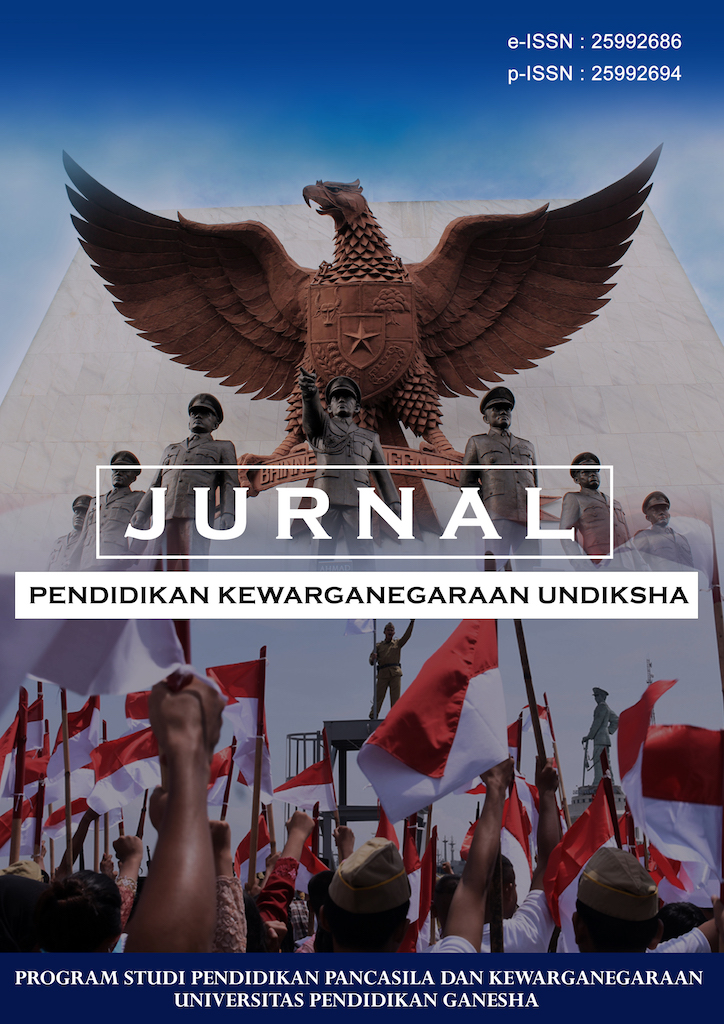ASEAN COOPERATION IN ERADING CRIMINAL ACTS OF TERRORISM IN SOUTHEAST ASIAN AREA
DOI:
https://doi.org/10.23887/jpku.v8i3.28609Abstrak
Today terrorism has become the most serious threat to humanity and civilization and has had a huge impact on all aspects of the life of the nation and state. At the regional level, Southeast Asia is a region facing serious challenges in the security sector. The problem of terrorism is a problem faced by many Southeast Asian countries. The number of terrorism incidents occurring in Southeast Asia has resulted in ASEAN being demanded to play a bigger role in solving this problem. The ASEAN Convention on Counter Terrorism (ACCT) was signed at the 12th ASEAN Summit in Cebu, Philippines, January 2007. This convention provides a strong legal basis for increasing ASEAN cooperation in the field of combating terrorism. Apart from having a regional character, ACCT is comprehensive (covering aspects of prevention, enforcement and rehabilitation programs) so that it has added value when compared to similar conventions. The harmonization of cooperation in the ACCT can be seen from the cohesiveness of ASEAN member countries in agreeing to the neutrality of defining terrorism as a common enemy and also counter-terrorism efforts by still adjusting to the principles of upholding human rights, international law and UN resolutions and without labeling certain communities as terrorist groups. The obstacles faced by ASEAN in eradicating criminal acts of terrorism in the Southeast Asia region are the ASEAN principle of non-intervention, ASEAN still focuses on social and cultural issues, domestic political conflicts in ASEAN Member countries such as Thailand and Myanmar and conflicts that occur among ASEAN member countries such as Indonesia and Malaysia in the case of borders and culture.
Unduhan
Diterbitkan
Terbitan
Bagian
Lisensi
Authors who publish with the Jurnal Pendidikan Kewarganegaraan Undiksha agree to the following terms:
- Authors retain copyright and grant the journal the right of first publication with the work simultaneously licensed under a Creative Commons Attribution License (CC BY-SA 4.0) that allows others to share the work with an acknowledgment of the work's authorship and initial publication in this journal.
- Authors are able to enter into separate, additional contractual arrangements for the non-exclusive distribution of the journal's published version of the work (e.g., post it to an institutional repository or publish it in a book), with an acknowledgment of its initial publication in this journal.
- Authors are permitted and encouraged to post their work online (e.g., in institutional repositories or on their website) prior to and during the submission process, as it can lead to productive exchanges, as well as earlier and greater citation of published work. (See The Effect of Open Access)










